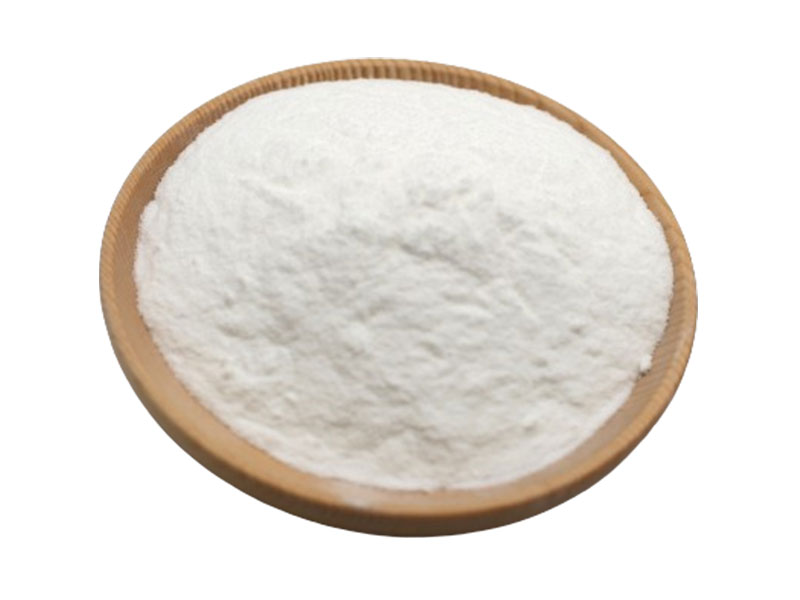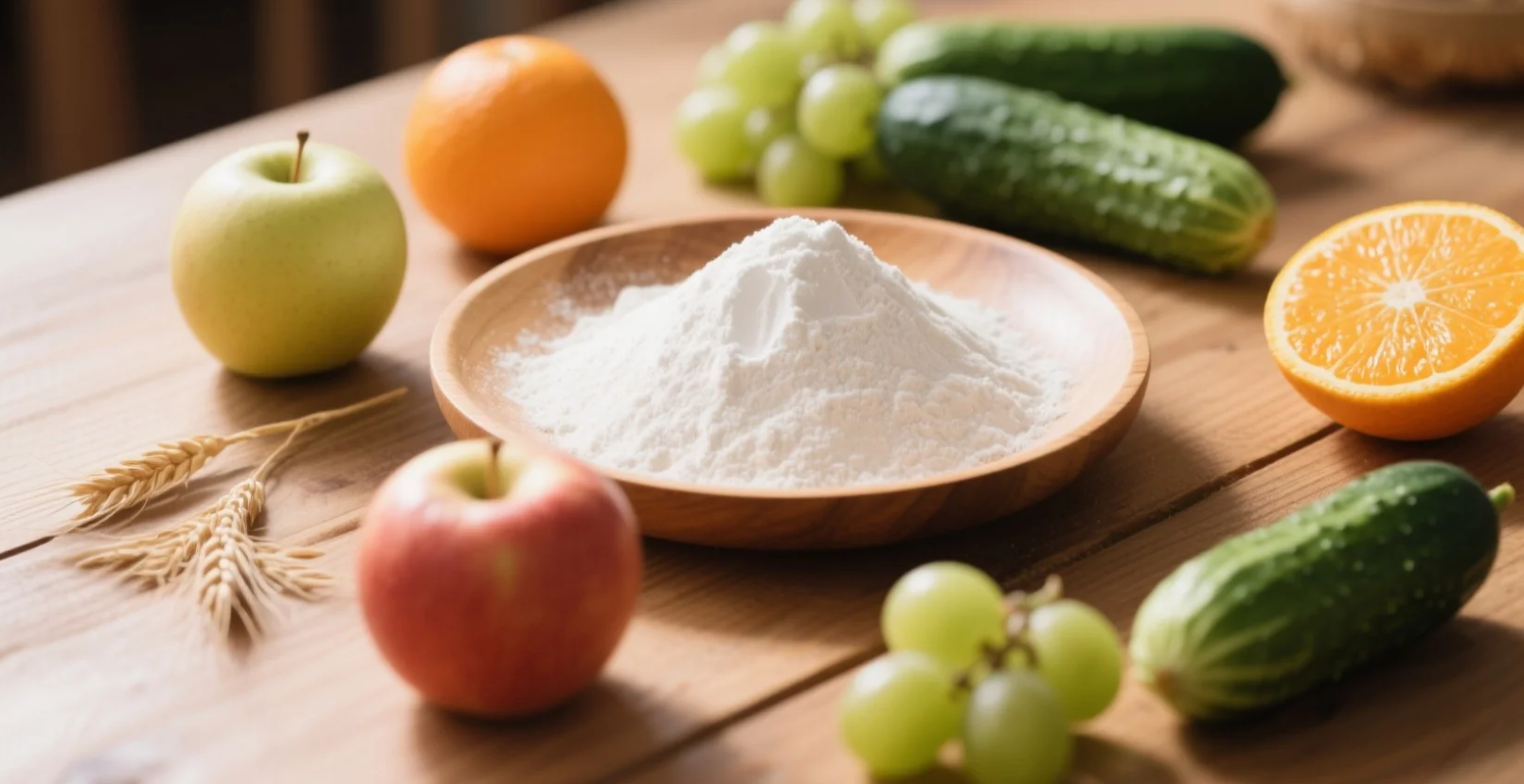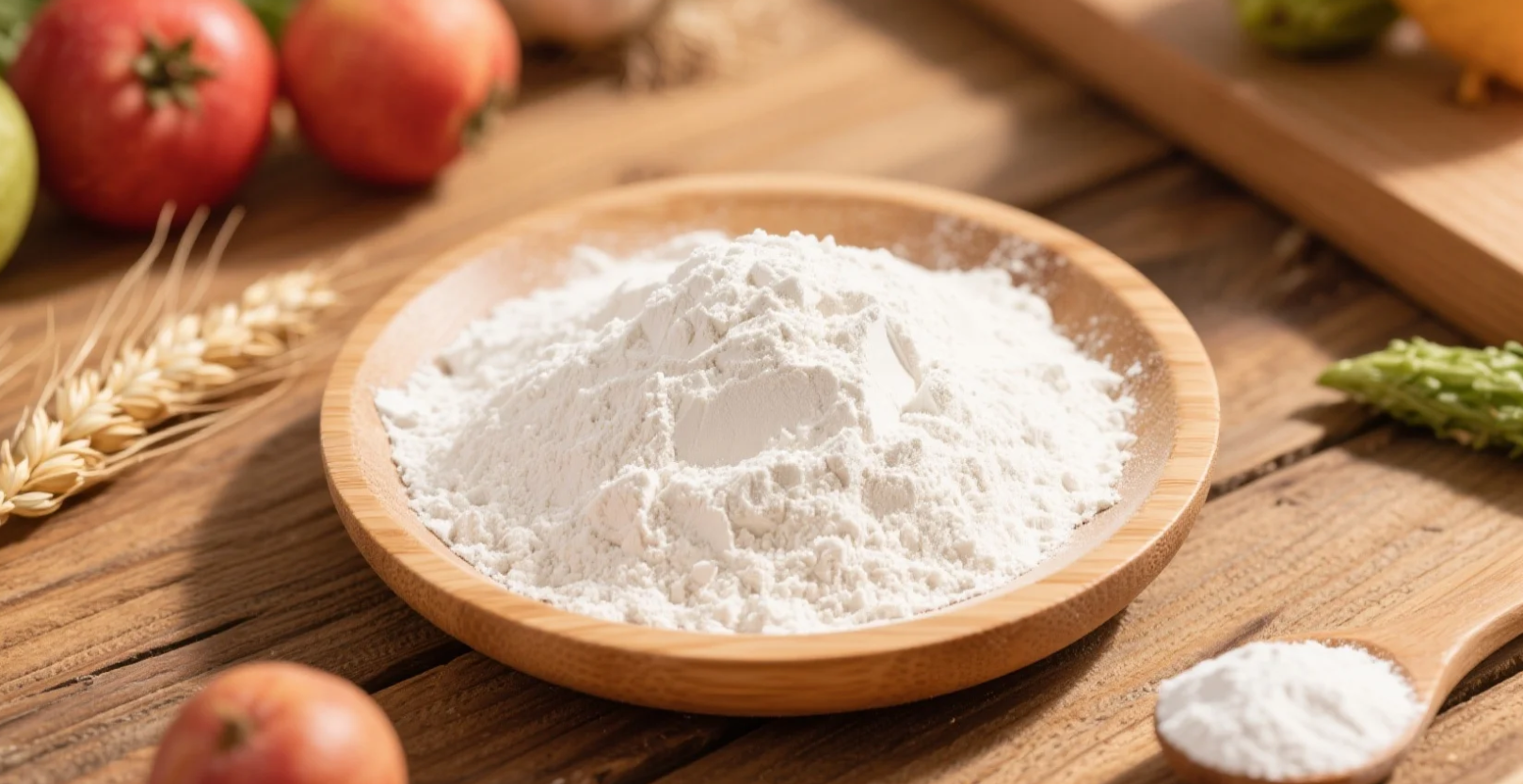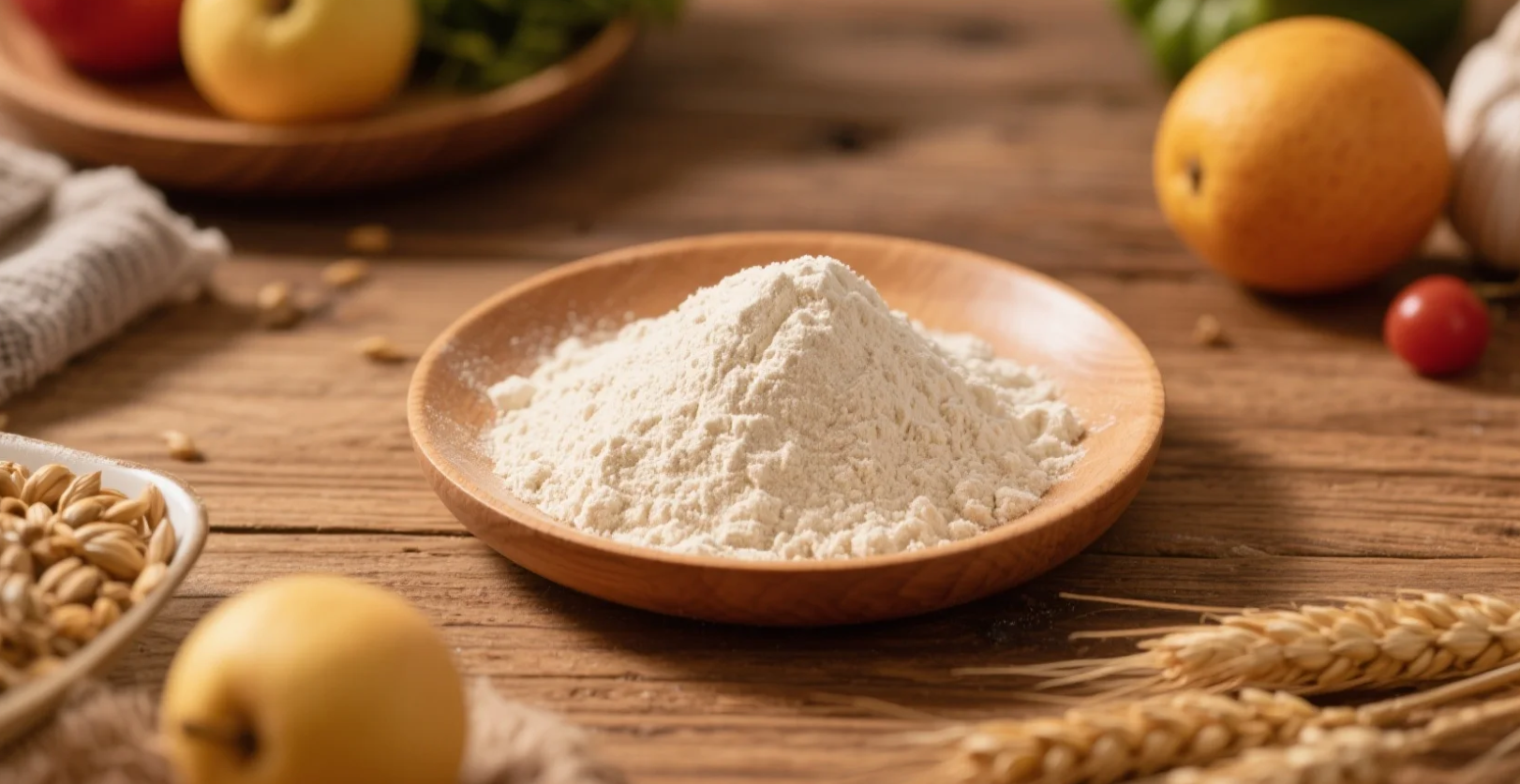What is organic maltodextrin Powder?
Organic Maltodextrin Powder is a plant-based carbohydrate derived from certified organic non-GMO starches (corn, tapioca, or rice). Processed via enzymatic hydrolysis, it serves as a versatile texture modifier, carrier, and stabilizer. Available in three dextrose equivalent (DE) grades to match functional needs:
- DE 8-10: Low sweetness, high viscosity
- DE 10-15: Balanced functionality
- DE 15-20: Higher solubility, mild sweetness
Specifications
| Parameter | DE 8-10 | DE 10-15 | DE 15-20 |
|---|---|---|---|
| Dextrose Equivalent (DE) | 8–10 | 10–15 | 15–20 |
| Appearance | White fine powder | White fine powder | White fine powder |
| Sweetness (vs. Sucrose) | 5–10% | 10–15% | 15–20% |
| Solubility | Good (hot water) | Excellent | Instant |
| Viscosity (20% sol.) | High | Medium | Low |
| Hygroscopicity | Low | Moderate | High |
| Moisture Content | ≤5% | ≤5% | ≤5% |
| Particle Size (D90) | ≤100µm | ≤100µm | ≤100µm |
| Caloric Value | 3.8–4.0 kcal/g | 3.8–4.0 kcal/g | 3.8–4.0 kcal/g |
Key Highlights
- Organic & Non-GMO: USDA/EU certified, Non-GMO Project Verified
- Clean-Label: No synthetic carriers or anti-caking agents
- Functional Versatility: Tailored DE grades for specific applications
- Low Allergen Risk: Gluten-free, soy-free, nut-free processing
Key Features & Benefits
DE 8-10
- Thickening Power: High viscosity for sauces, soups, and infant formulas
- Low Sweetness: Minimal flavor interference in savory applications
- Moisture Control: Reduces syneresis in meat alternatives
DE 10-15
- Balanced Performance: Ideal for baked goods and protein bars
- Carrier Efficiency: Encapsulates flavors and oils without clumping
- Freeze/Thaw Stability: Maintains texture in frozen products
DE 15-20
- Rapid Solubility: Instant dispersion in cold beverages and shakes
- Mild Sweetness: Enhances flavor in electrolyte drinks and gummies
- Low Viscosity: Smooth mouthfeel in meal replacement shakes
Applications
DE 8-10 Applications
- Infant Formula: Thickened milk formulations
- Sauces/Dressings: Roux thickener for clean-label gravies
- Meat Alternatives: Binder in plant-based burgers (3–5%)
DE 10-15 Applications
- Bakery: Crispiness enhancer in gluten-free breads (5–8%)
- Snacks: Texture modifier in protein bars and extruded crisps
- Supplements: Probiotic carrier in capsule formulations
DE 15-20 Applications
- Beverages: Base for instant electrolyte powders
- Confectionery: Prevents crystallization in gummies
- Pharmaceuticals: Excipient in effervescent tablets
Certifications & Quality Assurance
- Organic: USDA, EU Organic, COR
- Non-GMO: Non-GMO Project Verified
- Safety:
- Heavy Metals: Pb<0.1ppm, As<0.5ppm, Cd<0.05ppm
- Microbiology: TPC <1,000 CFU/g
- Pesticides: 500+ residues non-detect (EU MRL compliant)
- Compliance: FSSC 22000, Kosher, Halal, GRAS
Why Choose Us
Technical Precision
- DE-specific hydrolysis control (±1 DE unit tolerance)
- Custom particle size milling (50–200µm available)
Supply Chain Integrity
- Traceable sourcing from organic farms
- Batch-specific certificates of analysis
Quality Commitment
- Real-time DE validation via HPLC
- 24-month shelf life (moisture-barrier packaging)
Sustainability Focus
- Upcycled from organic starch processing
- Carbon-neutral production facilities
FAQs
Q: What does “DE” stand for in Organic Maltodextrin, and why are different DE values important?
A: DE stands for Dextrose Equivalent, which measures the reducing sugar content of a carbohydrate polymer relative to dextrose (glucose), expressed as a percentage on a dry basis. Different DE values indicate varying chain lengths of the sugar molecules, influencing sweetness, solubility, viscosity, and hygroscopicity. Choosing the right DE is crucial for achieving desired functional properties in your end product.
Q: Is Organic Maltodextrin considered gluten-free?
A: Yes, Organic Maltodextrin, regardless of whether it’s derived from organic corn or organic tapioca, is highly processed and purified to remove proteins, making it inherently gluten-free and suitable for gluten-free product formulations.
Q: How do the different DE values impact product sweetness and viscosity?
A: Higher DE values (like DE 15-20) mean more hydrolysis, resulting in shorter sugar chains, a higher perceived sweetness, and lower viscosity in solutions. Conversely, lower DE values (like DE 8-10) mean longer chains, less sweetness, and higher viscosity, making them better for bulking and binding.
Q: What is the shelf life and recommended storage for bulk quantities?
A: Our Organic Maltodextrin (all DE forms) typically has a shelf life of 24 months from the manufacturing date when stored in a cool, dry place, away from direct sunlight and moisture, in its original sealed packaging. Specific bulk storage recommendations will be provided with your order documentation.
Q: Can Organic Maltodextrin be used as a sugar substitute in “sugar-free” products?
A: No, Organic Maltodextrin is a carbohydrate and is digested as such. While it has a lower sweetness profile and different caloric density than pure sugar, it is not a non-caloric sweetener and would not qualify for “sugar-free” claims. It is often used in “reduced sugar” or “no added sugar” products to provide bulk and texture without excessive sweetness.
Packing




